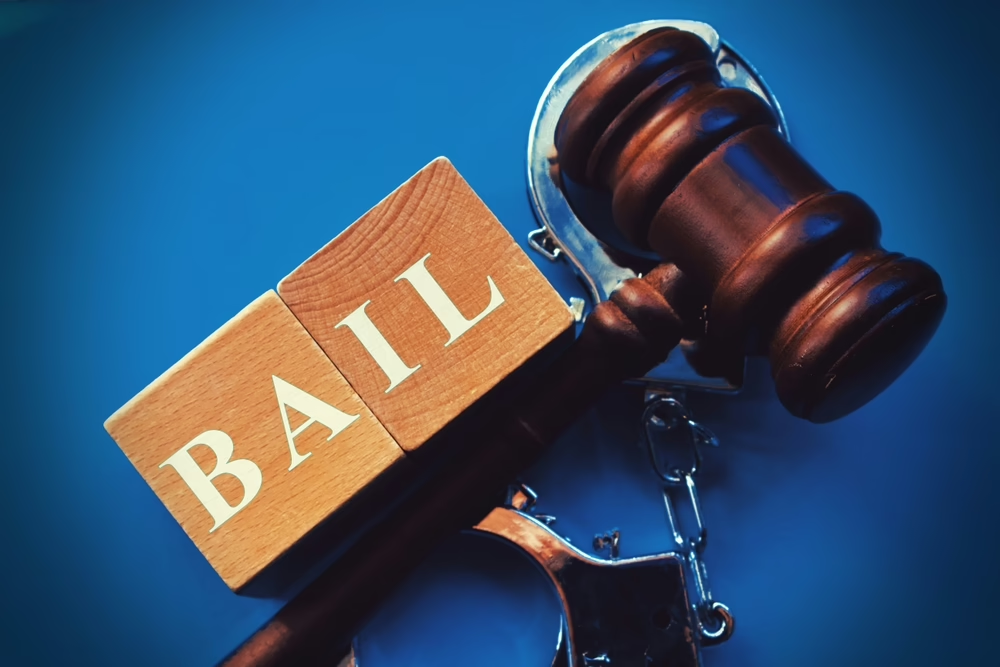The phone call came in the middle of the night. A loved one was in jail, and you did what you had to do. You called a bail bond agent, signed the papers, and perhaps even put up your house as collateral. Now, after weeks or months of stress, the criminal case is finally over.
You hear the phrase “bail bond exonerated.” But what does bail bond exonerated mean, and are you finally off the hook? The legal process uses its own language, and it can feel like a maze. Understanding the bond exonerated meaning is your final step to closing this difficult chapter. It is the news you have been hoping for, signaling an end to a major financial obligation. Reach out for bail bonds in Ohio.
The Bail Bond Journey: A Quick Recap
Before discussing bond exoneration, let’s review how this situation began. When someone is arrested, a judge sets a bail amount. This is a sum of money the court holds to ensure the person, known as the defendant, shows up for all required court hearings.
Many people do not have thousands of dollars available for cash bail. This is where licensed bail agents come into the picture. You pay them a non-refundable fee, known as the premium charged, which is typically 10% of the total bail amount.
In return for this fee, the bail bond agency posts a surety bail bond with the court for the full amount. This act of posting bail allows for the defendant to be released from custody. As part of this bail agreement, you likely signed an indemnity agreement, making you the cosigner and financially guaranteeing the defendant’s court appearances.
What Does Bail Bond Exonerated Mean?
A “bail bond exonerated” status is very good news. The exonerated meaning in this context is “to free from blame or responsibility.” It signifies that the court has issued an order officially ending the bail agreement and releasing the bond company from its financial duty to the court.
Because the surety insurance company that backs the bond is no longer liable, this also means you, the cosigner, are no longer liable. The court is essentially stating that the defendant has fulfilled all of their obligations. The bond has served its purpose, and the bail obligation is now canceled.
This is the moment you have been waiting for since you first signed the paperwork. A bail exoneration marks the official end of your financial risk in the bail case. The primary purpose of bail is simply to make sure the defendant appears for court, not to serve as a pre-trial punishment.
How Does a Bail Bond Get Exonerated?
A judge will order a bail exoneration for several reasons, all of which signal the end of that specific legal proceeding. The exoneration process is triggered when the court no longer needs the financial guarantee to ensure the defendant’s presence. Here are the most common scenarios that lead to an exonerated bail bond.
The Defendant is Found Not Guilty
This is often considered the best possible outcome of a criminal case. After a trial, if the jury or judge finds the trial defendant not guilty of the charges, the case is concluded. Because the defendant appeared for all required court dates, the bond is no longer necessary and the judge will issue a court order for bail bond exoneration.
The Case is Dismissed
A prosecutor might decide to drop all charges against the defendant. This dismissal could happen for many reasons, such as insufficient evidence, a witness becoming unavailable, or a successful motion to suppress evidence crucial to the case. Once a judge formally dismisses the case, the defendant’s court obligations are met, and the bail bond is exonerated.
The Defendant Accepts a Plea Bargain and is Sentenced
Many criminal cases conclude when the defendant accepts a plea bargain, agreeing to enter a guilty plea or a no-contest plea in exchange for a specific sentence. Once the judge accepts the plea and formally imposes the sentence, the purpose of the bail bond is fulfilled. The defendant is then transferred to the custody of the corrections system, whether for jail time or probation, and the court exonerates the bond.
The Defendant is Found Guilty and Sentenced
If a case goes to trial and the defendant is found guilty, the bail bond remains in effect until the sentencing hearing. Once the judge hands down the sentence, be it jail time, fines, or probation, the conditions of bail are complete. The court’s pre-trial supervision through the bond is over, and the bail is exonerated.
Completion of a Diversion Program
In some cases, particularly for first-time or non-violent offenses, a defendant may be offered a diversion program. For example, a drug diversion program allows an individual to receive treatment and education instead of facing traditional prosecution. Upon successful completion of the drug diversion, the charges are often dismissed, leading to the exoneration of the bail bond.
The Defendant is Found Mentally Incompetent
The criminal justice system requires that a defendant be competent to stand trial. If a defendant is found to be mentally incompetent, the criminal proceedings are suspended. Since the defendant cannot legally stand trial at that time, the bail bond is exonerated while they receive treatment to restore competency.
The Defendant Passes Away
While tragic, if a defendant dies before their case is resolved, they can no longer attend court. The court will exonerate the bond upon receipt of a valid death certificate. This action releases the bail bond agency and the cosigner from any further responsibility.
What Exoneration Means for Everyone Involved
The exoneration of bail bonds affects everyone tied to the bail agreement. It brings a significant sense of relief, but it is helpful to understand the practical effects for each party. This clears up any confusion about the end of the bond process.
For the Cosigner (The Indemnitor)
If you cosigned the bond, bail exoneration is your green light. Your duties under the indemnity agreement are officially over. You are no longer financially responsible for ensuring the defendant gets to their required court appearances. This is also when your collateral should be returned. The bail bond agency must return any property or money you pledged to secure the bond. What about the initial fee paid to the bail bondsman? It is important to remember that this premium is non-refundable. You paid a licensed bail agent for a service—posting bail to get a loved one released from jail—and the service was rendered successfully.
For the Defendant
For the defendant released on bail, an exonerated bond means that piece of the legal puzzle is finished. They are no longer bound by the conditions of that specific bail agreement. This could include the lifting of specific restraining orders or other pre-trial requirements.
It is a clear signal that the pre-trial phase of their criminal case is over. This allows them to move forward, whether that means starting a sentence, complying with probation terms, or walking away free after an acquittal. The constant worry of accidentally violating a release condition related to the posted bail is removed.
Exonerated vs. Forfeited: The Two Sides of the Coin
Understanding the bail exoneration process is easier when you compare it to its opposite: forfeiture. A bond is forfeited when the defendant fails to appear in court. This is the scenario every cosigner dreads, as it triggers a cascade of serious financial and legal consequences.
| Condition | Bail Bond Exonerated | Bail Bond Forfeited |
| Defendant’s Actions | Attends all court appearances until the case concludes. | Fails to appear (FTA) for a required court date. |
| Court’s Action | Releases the bond company from the financial obligation. | Issues an arrest warrant and demands payment of the full bail amount. |
| Outcome for Cosigner | Financial obligation ends. Collateral is returned. | Becomes liable for the full bail amount. Collateral is seized to pay court fees. |
| Outcome for Bond Agent | Collects the premium as profit. Business is concluded. | Must pay the court. May use a fugitive recovery agent to find the defendant. |
When a defendant skips bail, the judge will revoke bail and immediately issue a bench warrant for their arrest, alerting law enforcement. The court then notifies the bail bond agency that the bond is in forfeiture. The agency, and by extension you as the cosigner, is now on the hook for the entire bail money amount.
The bond agency is given a limited time, known as a grace period, to locate the defendant and return them to court. During this period, the bail agent may hire a fugitive recovery agent to find the defendant and surrender them to custody. If the defendant is returned in time, the agent can file a motion to have the forfeiture set aside.
If they fail, the bond agency must pay the court the full bail amount. They will then use the collateral you pledged to cover that cost and may sue you for any remaining balance. This is why it is so critical for the defendant to attend all court hearings.
The Final Steps: Getting Your Collateral Back
The court has issued the order and the bail bond is exonerated. The next step in the bail bond process is getting your property back. The procedure should be simple, but being proactive can help. The bail bond agency typically receives the exoneration notice directly from the court. However, it never hurts to get your own certified copy of the court order from the clerk’s office. You can then provide this document to your bail agent directly via email or in person.
A reputable bond agency will have a clear exoneration process for returning collateral. They will remove any lien placed against your property and return your deed or cash. Always get written confirmation that the lien has been released and the agreement is concluded to protect yourself from future issues. If you encounter delays, do not hesitate to contact the agency’s management. Keep records of your communication, including the phone number you called and any email address you used to send messages.
Conclusion
Coming to grips with legal terms can be tough, especially under stress. So, what does bail bond exonerated mean in simple terms? It means freedom from the financial obligation you took on when you decided to provide bail for a loved one. Get a bail bond in Ohio.
An exonerated bail is the official court declaration that your financial responsibility and the bond’s purpose have ended. This happens because the defendant fulfilled all legal obligations by attending their court dates. You can finally breathe a sigh of relief knowing your collateral is safe and this difficult period of your life is over.
This knowledge of the bail exoneration process empowers you to see the situation through to its true and final conclusion. Your financial obligations are complete, and you can move forward. This final piece of good news closes the chapter on a stressful experience.





